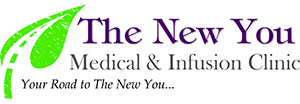Contact Dermatitis Treatment Hurst, TX

Contact dermatitis is a skin condition characterized by itchy red skin rashes, dry or cracked skin, and burning. The condition is typically a reaction to certain soaps, plants, metals, and cosmetic creams. If left untreated, contact dermatitis may lead to worsening of symptoms and increased risk of infection.
Types of Contact Dermatitis
The condition may vary in severity depending factors such as genetic makeup, length of exposure, and the type of irritant you've been exposed to. Each case of contact dermatitis is typically categorized as one of three forms:
Allergic Contact Dermatitis
This form of dermatitis appears as the result of contact with an allergen. In this case, the development of symptoms is the product of an allergic reaction . Contact may be made with the skin to trigger a reaction, although it is possible to develop symptoms after accidentally ingesting food allergens . Allergens that commonly trigger contact dermatitis include certain metals, plants, cosmetic or hygiene products, and medications.
Irritant Contact Dermatitis
This form of contact dermatitis often appears as a result of contact with non-allergic triggers including certain cleaning solutions, airborne irritants, and personal care products (soaps, shampoo, or makeup). This form of contact dermatitis may appear immediately or following prolonged/repeated exposure. This is typically believed to be the most common form of contact dermatitis.
Occupational Contact Dermatitis
This form of contact dermatitis may be caused by irritants or allergens. What distinguishes this form of the condition is that exposure occurs in the workplace or while engaged in a hobby. Occupations such as custodial workers, aestheticians, or healthcare workers may have an increased risk of exposure.
Symptoms of Contact Dermatitis
- Red, dry, cracked, or scaly skin
- Burning or tender sensation
- Blisters in the affected area
- Severe or persistent itchiness
Seek medical attention in cases of contact dermatitis affecting the face or genitals. It is also advisable to seek medical attention if symptoms of contact dermatitis become widespread or cause intolerable irritation.
Treating Contact Dermatitis
As with any potential allergy or irritant, avoiding exposure is often the best way to avoid or minimize the severity of symptoms. Identifying which materials may trigger contact dermatitis is often a good first step in learning how to avoid exposure.
Installing an air filter in your home may also provide protection against certain airborne irritants. Your doctor may prescribe medications such as skin creams and oral corticosteroids and antihistamine to reduce inflammation, provide symptom relief and heal the skin.
Request more information about contact dermatitis today. Call (817) 203-2760 or contact Ms. Jessica Stangenwald online.
The New You Medical & Infusion Clinic
Address
100 Grapevine HwyHurst, TX 76054
(817) 203-2760
https://www.newyoumedclinic.com/
Hours
Mon:
10:00 am - 6:00 pm
Tue:
10:00 am - 6:00 pm
Wed:
10:00 am - 6:00 pm
Thu:
10:00 am - 6:00 pm
Fri:
Closed
Sat:
Closed
Sun:
Closed


